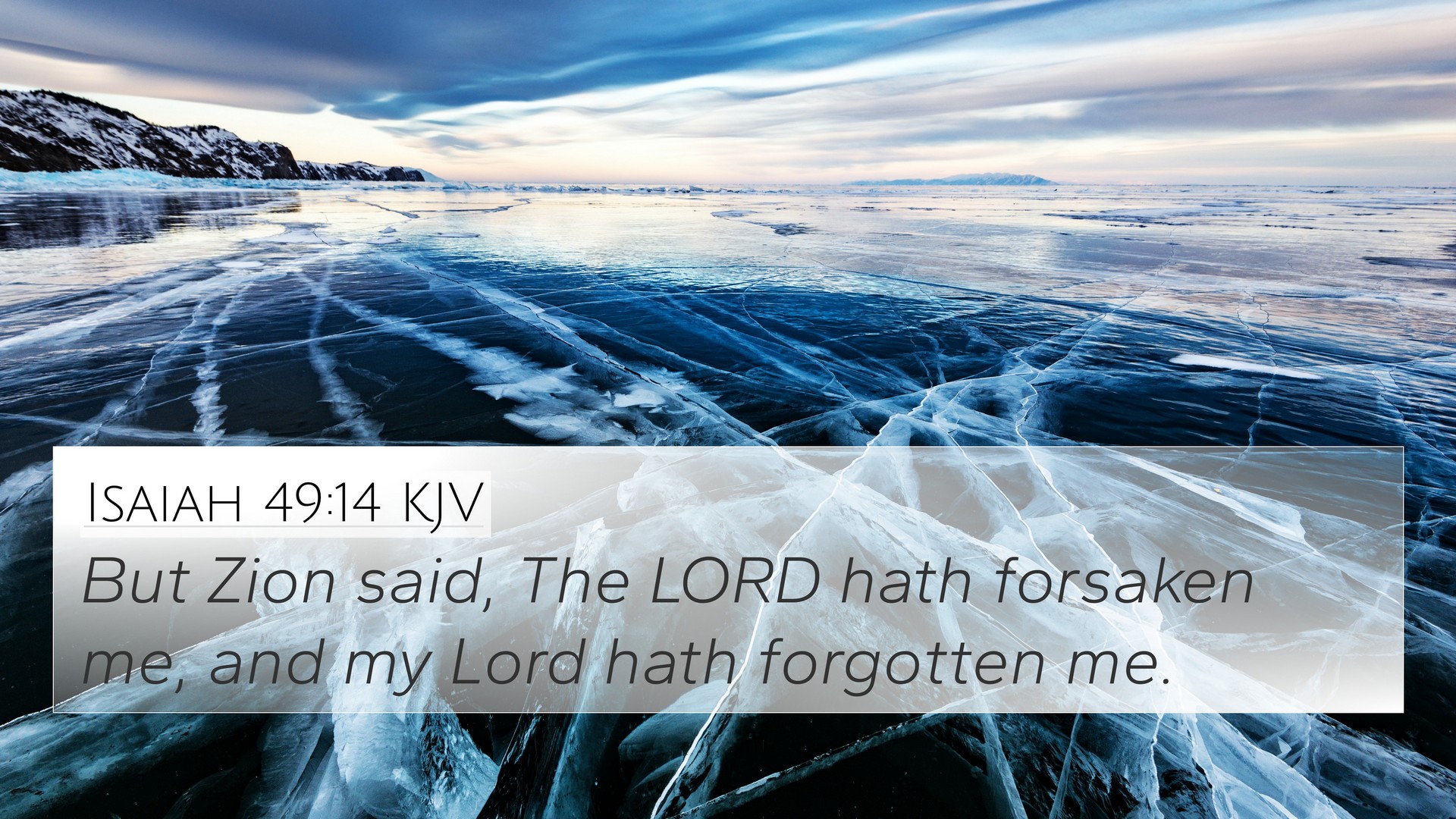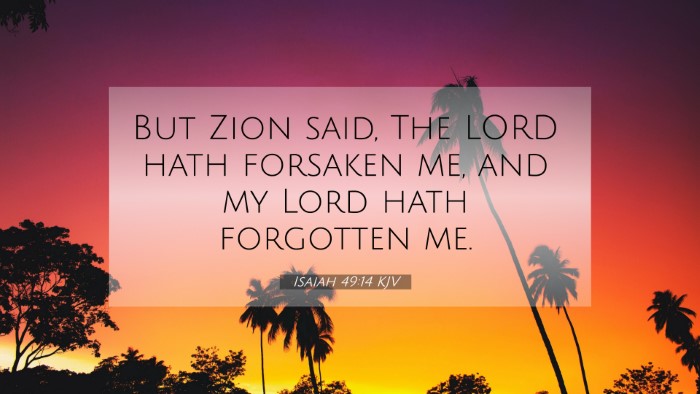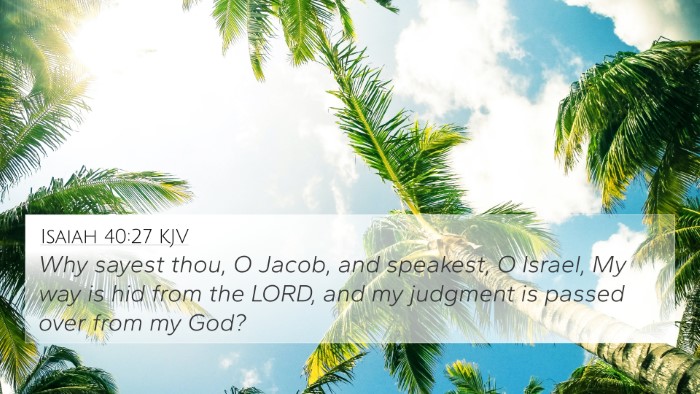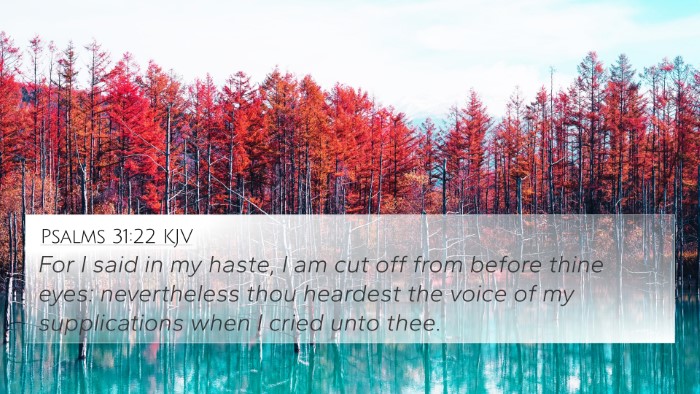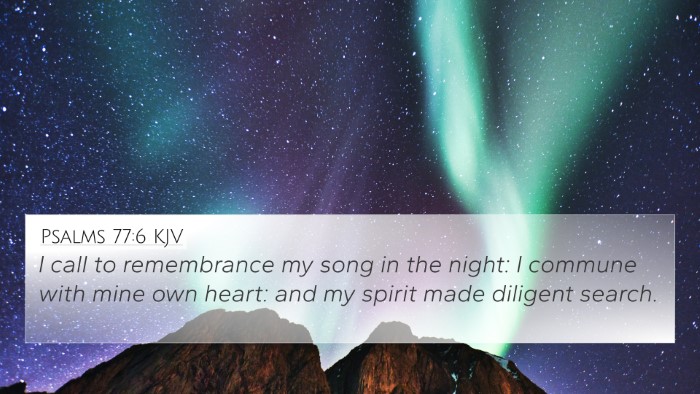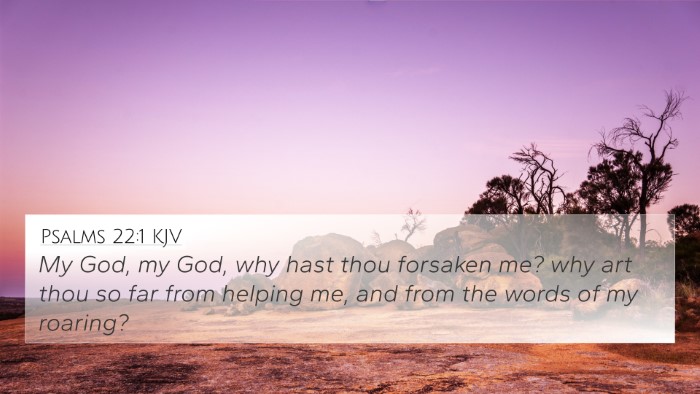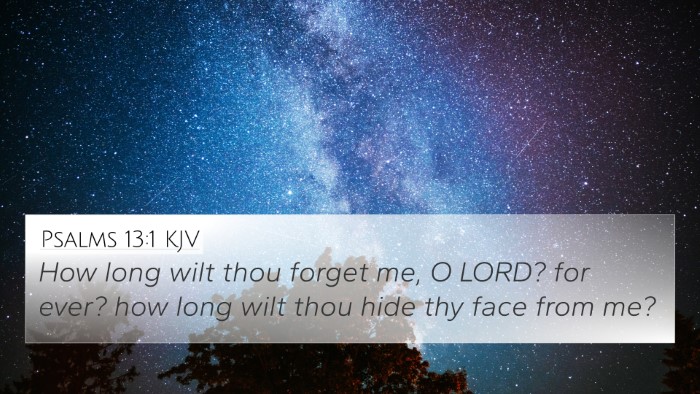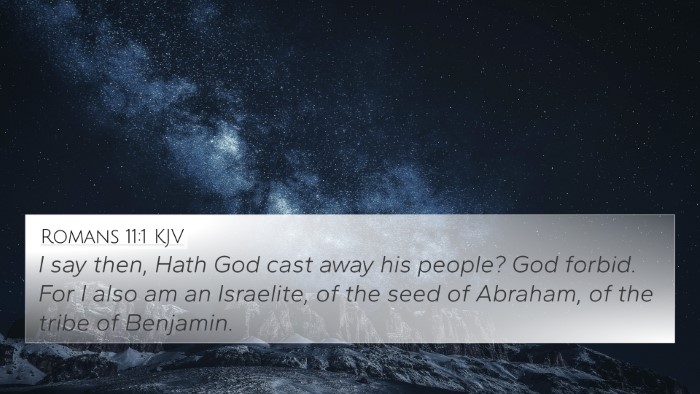Understanding Isaiah 49:14
Isaiah 49:14 states: "But Zion said, The LORD hath forsaken me, and my Lord hath forgotten me." This verse reveals a profound expression of despair uttered by Zion, representing Israel, as they feel abandoned by the Lord. Such feelings highlight the tension between divine promise and perceived reality. The following is a compilation of insights from renowned public domain commentaries that provide depth to this verse.
Summary of Verse Meaning
This scripture can be interpreted as a poignant cry from a people who believe that God, their protector, has ignored or cast away His chosen. It reflects the human experience of feeling forsaken, particularly during times of suffering. The emotional weight of this lament suggests a loss of hope, but it is set against the backdrop of God's everlasting covenant with His people.
Insights from Commentaries
- Matthew Henry: Henry emphasizes that the lamentation of Zion is rooted in the painful experiences of Exile and the absence of divine favor. He draws attention to the broader implications of questioning God's presence, which resonates through Israel's history. Henry reflects on the faithfulness of God, suggesting that even in apparent abandonment, the promise of restoration remains potent.
- Albert Barnes: Barnes examines the historical context, asserting that this cry likely relates to the Babylonian captivity, where the Israelites felt completely forsaken. He asserts that God's silence does not equate to forgetfulness and encourages an understanding of God's faithfulness amidst trials. He argues that the times of suffering could lead to a more profound appreciation of God's mercy when restoration comes.
- Adam Clarke: Clarke elaborates on the emotional state of Zion by interpreting the phrase “forsaken me” as a moment of deep introspection. He highlights the resentment that often builds up when one feels abandoned, urging believers to seek God even in the darkest times. Clarke also adds that this sentiment serves as a reminder of God's unwavering thoughts toward His people, which is further manifested through the messianic promises in the subsequent verses.
Related Bible Verses and Cross-References
Isaiah 49:14 can be explored in light of several other biblical passages that share similar themes of abandonment and God’s steadfast love. Here are some important cross-references:
- Psalms 22:1: "My God, my God, why hast thou forsaken me?" - A cry of despair that expresses feelings of abandonment similar to Zion’s lament.
- Isaiah 54:7-8: "For a small moment have I forsaken thee; but with great mercies will I gather thee." - This conveys God’s temporary withdrawal contrasted with His ultimate mercy.
- Lamentations 3:31-33: "For the Lord will not cast off forever..." - An assurance that God does not ultimately abandon His people.
- Hebrews 13:5: "For he hath said, I will never leave thee, nor forsake thee." - New Testament reassurance of God’s faithful presence.
- Matthew 28:20: "...and, lo, I am with you always, even unto the end of the world." - Jesus' promise of His presence echoes the sentiment found in Isaiah.
- Romans 8:38-39: "For I am persuaded, that neither death, nor life... shall be able to separate us from the love of God." - Emphasizes the unbreakable bond of God’s love.
- Isaiah 40:27: "My way is hid from the Lord, and my judgment is passed over from my God." - Reflecting similar feelings of forsakenness, yet contextualizing it within God’s plans.
Thematic Connections
This verse serves as a basis for many thematic connections within Scripture that highlight the dynamic between exile, lamentation, and hope for redemption. The feelings expressed in Isaiah 49:14 echo through the psalms of lament and prophetic texts, offering an invitation for believers to engage in the realities of their faith. It also calls for an acknowledgement of the normalcy of doubt in the human experience of faith.
Tools for Bible Cross-Referencing
In your study of Isaiah 49:14, consider utilizing the following tools for effective Bible cross-referencing:
- Bible Concordance - A comprehensive listing of words and their occurrences for thematic studies.
- Bible Cross-reference Guide - Essential for drawing connections between similar themes across different books.
- Cross-reference Bible Study Methods - Implementing systematic approaches to study the interconnectedness of scriptures.
- Bible Reference Resources - A collection of scholarly writings that explain the verse's significance in context.
- Bible Chain References - Resources that help trace verses through a chain of thought.
Conclusion
Isaiah 49:14 is an echo of an age-old struggle between belief and apparent abandonment. The insights from various commentaries and the cross-referencing of related verses enrich our understanding of the text. This exploration not only deepens theological knowledge but nurtures spiritual resilience, reminding us that even in moments of despair, divine faithfulness prevails.
